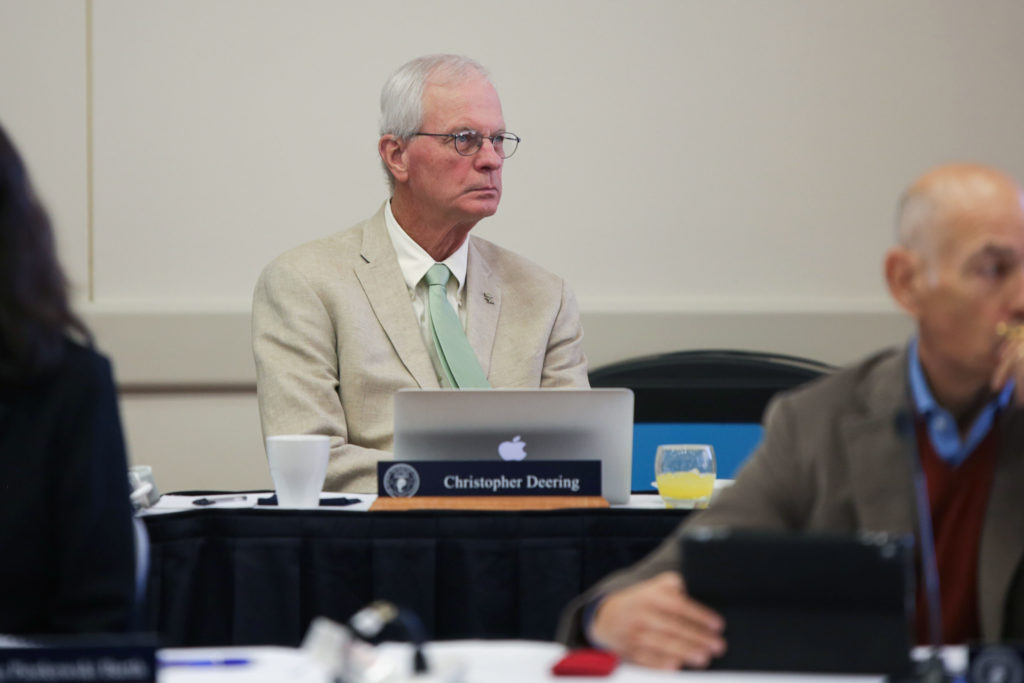College of Professional Studies officials are partnering with a virtual education company to hold a bootcamp dedicated to preparing students to work in finance.
The school partnered with Trilogy Education, an organization that hosts similar technology bootcamps to teach “skills-based training programs” and provides career services support for universities. Officials said the bootcamp will help prepare students for careers in finance as the demand for careers in the field increased in recent years.
The financial technology industry – which incorporates technology like the internet, cloud services and mobile devices in the financial services sector – has become a multibillion-dollar industry in recent years, and a greater number of universities have introduced similar bootcamps for students.
Christopher Deering, the interim dean of CPS, said the bootcamp’s mission is to provide a “preeminent education for non-traditional students,” given that the program is geared toward those who are currently in the workforce full-time.
“Trilogy Education’s mission is to provide skills-based training for working adults with particular emphasis on the digital economy,” Deering said in an email. “So we think this is a natural partnership for both.”
The bootcamp’s curriculum will cover topics like financial fundamentals, machine learning applications in finance, financial programming and cryptocurrency.
Trilogy Education has worked with several universities in other cities like Vanderbilt University and the University of Toronto to provide bootcamps in financial technology and other subjects like cybersecurity and coding.
Deering said the bootcamps offered by Trilogy are a “great add” to CPS’s existing programs in technology and cybersecurity. Trilogy has worked with GW in the past to establish bootcamps in coding, data analytics, cyber security and user experience and user interface design.
“All of these areas feature a job landscape where openings far exceed qualified applicants,” he said. “We are doing our part to address the skills gap that exists nationwide, and particularly in the DMV.”
Cyrus Homayounpour, the associate dean for marketing and enrollment management for CPS, said the program’s goal is to prepare students for in-demand jobs in technology and data.
“Demand for financial technology jobs has been increasing significantly over the last 10 years with the number of jobs growing by a factor of three to about three million jobs,” he said in an email. “At the same time, there have been tremendous advances in big data, artificial intelligence, machine learning and blockchain which are increasingly being used in the financial sector.”
Homayounpour said officials hired “highly qualified instructors” who are also practicing professionals to teach the bootcamp, and they plan to constantly collect feedback from students about the course and subsequently adjust teaching and learning methods to adequately prepare students for jobs in the field.
He said a professor in the School of Business approved the curriculum, and other GW professors with expertise in the subject approved all bootcamp instructors before finalizing the project.
The District scored fourth on a list of 40 major cities in the United States and Canada in a 2019 “tech talent” report conducted by a real estate and investment firm – which scores cities based on an analysis of criteria like the quality of available tech workers – due to the number of “high-quality graduates” coming from the city.
“Washington, D.C., is poised for tremendous growth in tech for years to come,” the report states.
Homayounpour said administrators will measure participants’ success based on program completion, personal evaluations by students at the end of the course and the number of students who eventually become employed in their desired fields who use the career services available to them during the bootcamp.
The program will enhance participants’ career and employment opportunities by providing trained financial coaches and recruiters to give feedback on their resumes and help students navigate their job search, according to the program’s website.
The bootcamp is a part-time program that will run for 24 weeks with classes offered online, the program’s website states. In the wake of the COVID-19 outbreak, Homayounpour said the pandemic has had little effect on the boot camp’s plans other than a shift from in-person classes at the University’s Arlington campus to online.
“Except for offering it online as opposed to face-to-face, COVID-19 has not had any effects, bearing in mind that we are offering it for the first time this June so we don’t have anything to compare it with,” Homayounpour said.








